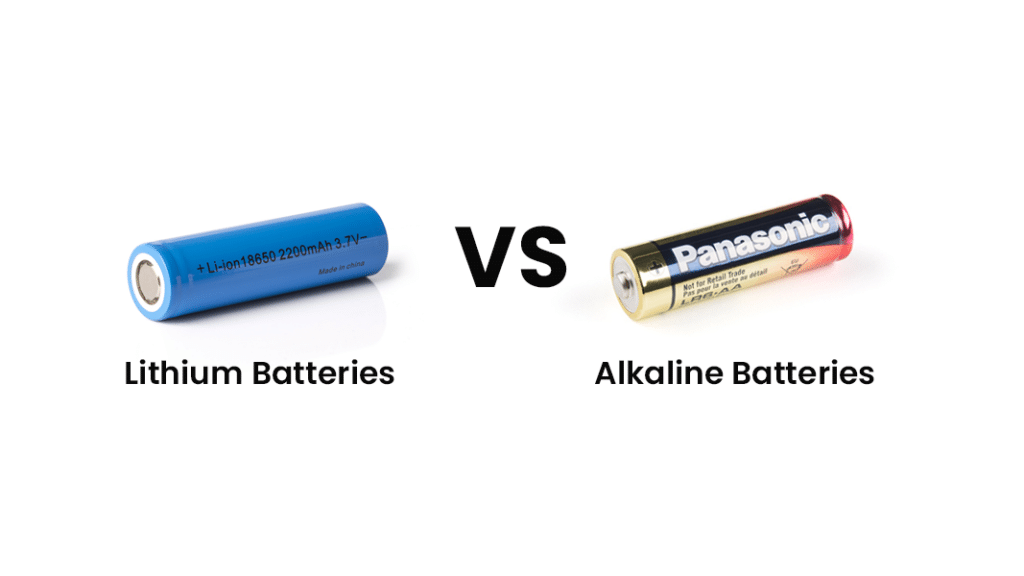
Batteries play a crucial role in powering our devices, from smartphones and laptops to remote controls and toys. When it comes to choosing the right battery for your needs, two popular options often come into play: lithium and alkaline batteries. Each type has its own set of characteristics, advantages, and limitations. In this comprehensive guide, we'll delve deep into the realm of lithium vs alkaline batteries to help you make an informed decision. Lithium vs Alkaline Batteries Ultimate Guide
Understanding Lithium Batteries
Lithium batteries have gained significant popularity in recent years, particularly in high-performance devices such as digital cameras, portable electronic gadgets, and electric vehicles. One of the key advantages of lithium batteries is their high energy density, which means they can store more energy in a smaller and lighter package compared to alkaline batteries. This makes them ideal for applications where space and weight are critical factors.
Moreover, lithium batteries boast a longer shelf life and superior performance in extreme temperatures compared to alkaline batteries. They also tend to maintain a more stable voltage throughout their lifespan, providing consistent power delivery to devices.
However, it's essential to note that lithium batteries come with some caveats. They can be more expensive upfront, although their longer lifespan and higher energy density often justify the initial investment. Additionally, lithium batteries require special handling and disposal due to their chemical composition, which includes elements like lithium cobalt oxide or lithium iron phosphate.
Exploring Alkaline Batteries
On the other hand, alkaline batteries have been a staple power source for various consumer electronics and household appliances for decades. These batteries utilize an alkaline electrolyte (usually potassium hydroxide) and a zinc anode, which reacts with manganese dioxide to produce electrical energy.
Alkaline batteries are widely available, affordable, and suitable for low to moderate power consumption devices such as remote controls, flashlights, and clocks. They also perform reasonably well in a wide range of temperatures, although extreme cold or heat can affect their performance and longevity.
One of the significant advantages of alkaline batteries is their versatility and compatibility with a wide range of devices. They come in various sizes, from AAA to D cells, making them suitable for powering everything from small electronic gadgets to larger appliances.
However, compared to lithium batteries, alkaline batteries have lower energy density and shorter shelf life. They may also experience voltage drop-off over time, leading to reduced performance in high-drain devices.
Choosing the Right Battery
When it comes to selecting between lithium and alkaline batteries, several factors come into play. It's essential to consider your specific requirements, budget, and the intended use of the batteries.
For high-performance devices that demand long-lasting power and compact size, lithium batteries are often the preferred choice. They excel in applications such as digital cameras, smartphones, and medical devices where reliability and energy efficiency are paramount.
On the other hand, for everyday gadgets and household appliances with moderate power requirements, alkaline batteries offer a cost-effective solution. They are readily available, affordable, and suitable for powering a wide range of devices without breaking the bank.
In summary, both lithium and alkaline batteries have their own unique characteristics and applications. While lithium batteries shine in terms of energy density, longevity, and performance, alkaline batteries offer affordability and versatility for everyday use.
Ultimately, the choice between lithium and alkaline batteries depends on your specific needs and preferences. Whether you're looking for long-lasting power for your high-tech gadgets or a reliable solution for everyday devices, understanding the differences between lithium and alkaline batteries will help you make an informed decision.
In conclusion, when it comes to unlocking the power of batteries, whether lithium or alkaline, knowledge is key. By understanding their strengths, weaknesses, and applications, you can choose the right battery to power your world efficiently and effectively.
So, whether you're embarking on a photography adventure with your digital camera or simply replacing the batteries in your TV remote, remember to consider the benefits of lithium vs alkaline batteries. With the right choice, you can ensure that your devices stay powered up and ready to go whenever you need them.
